Considered one of the most effective ways to avoid frozen pipes, freeze alarms are priced to fit any budget (from under $50 to $400) and available with a wide range of capabilities. Here’s a guide to today’s most popular models.
Why do you need a Freeze Alarm?
Furnace failures and power outages can happen at anytime, especially in the wintertime. If you want a way to get advance warning that the temperature in your home is dangerously low so you can remedy the situation before your pipes freeze, you need a freeze alarm.
Frozen pipes that burst can result in costly damage to walls, floors, fixtures and furniture. How costly? According to the Insurance Institute for Business & Home Safety and Nationwide Insurance Company, damage caused by a single burst water pipe averages more than $5,000 and the average frozen pipe insurance claim exceeds $10,000 for several burst pipes!
For a modest investment, you can get a freeze alarm to protect your home from frozen pipe damage. This article summarizes popular freeze alarms based on cost and highlights their most important features including: how it communicates; type of alerts sent out; and other conditions monitored.
Under $400
- A versatile freeze alarm for homes with a landline phone connection. (Can also communicate via a cellular network by adding a cellular terminal or Bluetooth terminal.)
- Calls up to four phone numbers with voice message alerts. Continues to call until someone responds.
- Monitors for high/low temperatures (adjustable set points) and power outages, plus four other conditions based on optional sensors.
- Remote programming possible by phone call.
- High and low temperature set points are adjustable.
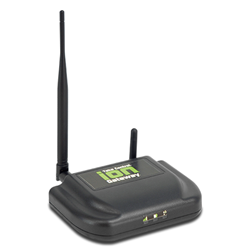 Metropolitan Ion Cellular Gateway
Metropolitan Ion Cellular Gateway
- Communicates via a cellular connection — ideal for homes without a landline phone or fulltime Internet connection. Simple plug-and-play setup.
- Operates on the T-Mobile network.
- Add a wireless temperature sensor to receive freezing temperature alerts.
- Sends text message or email alerts to up to three smartphones or computers.
- Also monitor for power outages, water, motion, open/closed doors and windows and more (with optional sensors).
- Remote programming possible via logging in.
- High and low temperature set points are adjustable.
Under $300
Temperature@lert Wi-Fi Edition
- A stand-alone freeze alarm that communicates via WiFi or wired via an Ethernet cable for homes with fulltime Internet.   ÂÂ
- Sends email alerts and text alerts to an unlimited number of smartphones or computers (text service fee required).
- Comes ready to monitor for high and low temperatures and can accept up to four other optional sensors, including humidity and water.
- Remote programming possible by logging in.
- High and low temperature set points are adjustable.
- An affordable cellular-based freeze alarm for homes without a landline phone or Internet connection.
- Operates on the Verizon network.
- Add a high/low temperature sensor to make this dual-sensor alarm function as a freeze alarm. (Note: Alarm also alerts for power outages and comes with a water sensor.)
- Sends text message alerts to up to three smartphones or mobile devices.
- High and low temperature set points are adjustable.
Under $200
- A small, battery-powered environmental sensor that can be placed inside or outside — for use at homes with a fulltime WiFi connection.
- Comes with built-in temperature, humidity, motion and light alerts; accepts two additional sensors.
- Sends text message or email alerts to up to five smartphones via the Elertus Internet Cloud Service.
- Requires no electricity — operates for about a year on two AA alkaline batteries.
- Remote programming possible via logging in or app.
- High and low temperature set points are adjustable.
- A landline phone-based freeze alarm that monitors hot or cold temperatures and lets you call in to change the settings or check the current temperature by phone. (Can also communicate via a cellular network by adding a cellular terminal or Bluetooth terminal.)
- Sends voice message alerts to up to three phone numbers.
- “Quick Status Check†feature lets you check current temperature, power and back-up battery status by phone call.
- Comes ready to monitor high or low temperature and power outages.  (Consider the Deluxe Freeze Alarm for a similar unit that monitors both hot and cold temperatures as well as other conditions using optional sensors.)
- High and low temperature set points are adjustable.
Under $100
HomeSitter Temperature, Water, and Power Alarm
- The lowest cost multi-functional home monitoring system on the market for homes with a landline phone connection. (Can also communicate via a cellular network by adding a cellular terminal or Bluetooth terminal.)
- Sends a voice message alert that announces the specific problem – calls up to three phone numbers and sounds a built-in siren.
- Comes ready to monitor either high or low temperature, power outages, water leaks and backup battery status.
- High and low temperature set points are “fixed†(below 45°F or above 85°F).
 La Crosse Online Temperature and Humidity Wireless Alert System
La Crosse Online Temperature and Humidity Wireless Alert System
- An online gateway for homes with fulltime Internet and a wired router connection – wireless sensors make it easy to monitor different locations around the house.
- Sends text message or email alerts to one smartphone.
- Historical data can also be viewed via by logging into a special web portal from any smartphone, computer or mobile device.
- Comes ready to monitor monitoring temperature and humidity; accepts up to five wireless sensors or wet or dry probes.
- High and low temperature set points are adjustable.
Under $50
Reliance Controls PhoneOut Freeze Monitor
- Affordable but reliable freeze alarm for monitoring a drop in temperature in homes with a landline phone connection. (Can also communicate via a cellular network by adding a cellular terminal or Bluetooth terminal.)
- Automatically calls up to five telephone numbers and sounds an alarm tone (i.e., no voice message) when the temperature drops below 42°F.
- Easy to install.
- Temperature set point is fixed at 42°F.
Additional Resources for Selecting a Freeze Alarm
For additional reading on how to pick a freeze alarm, go to the articles “Pick a Freeze Alarm Based on How it Communicates†and “Frequently Asked Questions About Freeze Alarms†on the diycontrols.com blog site or watch the video “How to Select a Freeze Alarm.†For tips on how to prevent frozen pipes in your home, take a look at this checklist published by the Insurance Institute for Business & Home Safety.




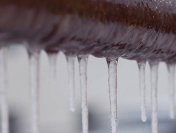

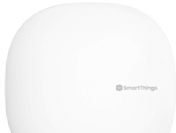
Pingback: Snowbird Checklist | Cushman Insurance Group